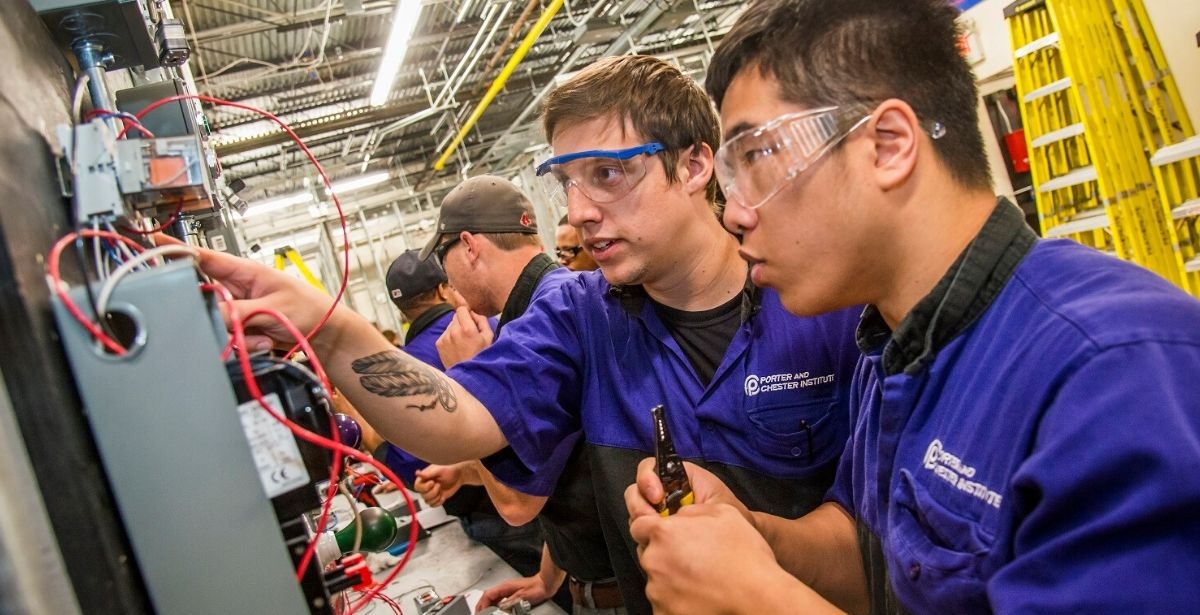Powering Proficiency: Training and Education for Electricians
by siteadmin

Electricians are the backbone of the electrical industry, responsible for installing, maintaining, and repairing electrical systems in homes, businesses, and industrial settings. To excel in this profession, electricians require comprehensive training and education to acquire the necessary knowledge, skills, and certifications. In this blog post, we’ll delve into the importance of training and education for electricians and explore the various pathways available for aspiring professionals to embark on a rewarding career in the electrical trade.
Classroom Instruction:
Formal classroom instruction serves as the foundation of electrician training, providing students with a comprehensive understanding of electrical theory, codes, regulations, and safety practices. In classroom settings, students learn about electrical principles, circuitry, wiring methods, electrical codes (such as the National Electrical Code), and safety standards. Experienced instructors guide students through lectures, demonstrations, and hands-on exercises to reinforce learning and prepare them for real-world applications.
Apprenticeship Programs:
Apprenticeship programs offer aspiring electricians the opportunity to gain practical, on-the-job experience under the supervision of seasoned professionals while earning a wage. Apprentices work alongside journeyman electricians, assisting with installations, troubleshooting electrical systems, and learning valuable skills in a real-world environment. Apprenticeship programs typically last four to five years and encompass both classroom instruction and hands-on training, culminating in certification as a journeyman electrician upon completion.
Vocational Schools and Technical Institutes:
Vocational schools and technical institutes offer specialized training programs specifically tailored to the electrical trade. These programs provide a focused curriculum that emphasizes practical skills and hands-on training in electrical installations, wiring techniques, circuit design, and troubleshooting. Students enrolled in vocational programs benefit from state-of-the-art facilities, industry-standard equipment, and experienced instructors who bring real-world expertise to the classroom. Upon completion of their training, graduates are equipped with the knowledge and skills needed to pursue entry-level positions as electricians or apprentices.
Continuing Education and Professional Development:
In the rapidly evolving field of electrical work, ongoing learning and professional development are essential for electricians to stay current with industry advancements, new technologies, and changes in regulations and codes. Continuing education programs, workshops, and seminars provide electricians with opportunities to expand their knowledge, refine their skills, and pursue specialized certifications or endorsements in areas such as renewable energy, energy efficiency, and advanced electrical systems. By investing in continuing education, electricians can enhance their career prospects, increase their earning potential, and stay competitive in the marketplace.
Safety Training and Certification:
Safety training is paramount in the electrical industry, where the potential for accidents and injuries is ever-present. Electricians undergo rigorous safety training to learn how to identify hazards, mitigate risks, and adhere to safety protocols and regulations. Certification programs such as the Occupational Safety and Health Administration (OSHA) 10-hour or 30-hour training courses provide electricians with essential knowledge and skills related to workplace safety, hazard recognition, and accident prevention. By prioritizing safety training and certification, electricians protect themselves, their colleagues, and the public from electrical hazards and ensure compliance with regulatory requirements.
Training and education are the cornerstones of a successful career in the electrical trade, providing aspiring electricians with the knowledge, skills, and certifications needed to excel in this dynamic and rewarding profession. Whether through classroom instruction, apprenticeship programs, vocational schools, continuing education, or safety training, electricians undergo rigorous training to ensure they are well-equipped to handle the challenges of the job safely and effectively. By investing in training and education, electricians lay the foundation for a successful career and contribute to the continued growth and advancement of the electrical industry.
Electricians are the backbone of the electrical industry, responsible for installing, maintaining, and repairing electrical systems in homes, businesses, and industrial settings. To excel in this profession, electricians require comprehensive training and education to acquire the necessary knowledge, skills, and certifications. In this blog post, we’ll delve into the importance of training and education for…
Recent Posts
- Powering Proficiency: Training and Education for Electricians
- Powering the Future: Emerging Technologies in the Electrical Industry
- Ensuring Safety: Standards and Regulations in Electrical Work by Electricians
- Troubleshooting Demystified: Common Issues of Electric Panels
- Demystifying Electric Panels: Understanding Their Components
